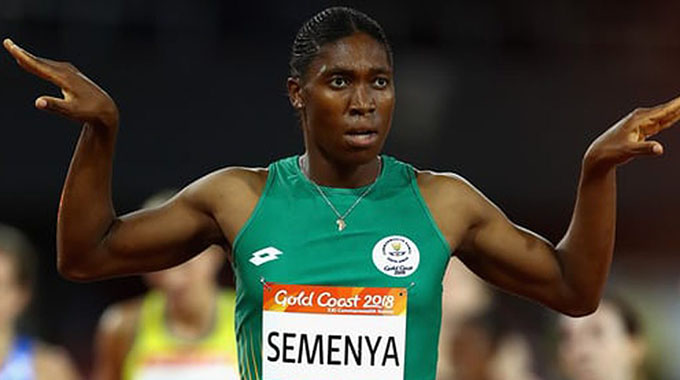No joy for Caster Semenya

LONDON. — The Court of Arbitration for Sport has dismissed Caster Semenya’s appeal over IAAF testosterone regulations.
The two-time Olympic 800m champion and Athletics South Africa had claimed the rules — which would force athletes with naturally-occurring high levels of testosterone to take medication to lower them — were unlawful.
The 28-year-old has one of the various genetic conditions collectively known as differences or disorders of sex development (DSD).
CAS said in a statement yesterday: “By majority, the CAS panel has dismissed the requests for arbitration, considering that the claimants were unable to establish that the DSD regulations were ‘invalid’.
“The panel found that the DSD regulations are discriminatory, but the majority of the panel found that, on the basis of the evidence submitted by the parties, such discrimination is a necessary, reasonable and proportionate means of achieving the IAAF’s aim of preserving the integrity of female athletics in the restricted events.”
Despite the award in favour of the IAAF, the CAS said its panel “expressed some serious concerns as to the future practical application” of the DSD regulations.
Semenya responded to the decision with a tweet which reads: “Sometimes it’s better to react with no reaction.”
Olympic 800m champion Semenya later said in response to the ruling that the IAAF “have always targeted me specifically”.
“For a decade, the IAAF has tried to slow me down, but this has actually made me stronger.
“The decision of CAS will not hold me back,” the statement continued.
“I will once again rise above and continue to inspire young women and athletes in South Africa and around the world.”
Previously, she had said that she wanted to “run naturally, the way I was born”.
Semenya and other affected athletes hoping to compete at the World Championships in Doha in September will have to start taking medication to lower their testosterone level to below the required level within one week.
That decision is a concession by the IAAF, due to the length of time it has taken CAS to reach a verdict — but in future athletes will be required to have reduced their blood testosterone level to below the stipulated concentration for a period of six months before they can compete.
The proposed regulations will only concern athletes competing in events from the 400m to the mile.
Semenya, a two-time Olympic champion in the 800m, will now be forced to medicate to suppress her testosterone levels if she wants to defend her world title in September in Doha, Qatar.
However, the judges want the IAAF to apply the rules only up to the 800m because the evidence was not clear that women with hyperandrogenism have a competitive advantage in the 1 500m.
“The CAS Panel suggested that the IAAF consider deferring the application of the DSD Regulations to these events (1 500m and the mile) until more evidence is available,” the court said.
That could give Semenya a route to compete at the world championships without taking medication.
She was the bronze medalist in the 1 500m at the 2017 worlds in London.
A further appeal is possible to Switzerland’s supreme court in Lausanne.
Federal judges rarely overturn CAS decisions, but can intervene if legal process was abused.
Semenya has been the subject of scrutiny ever since she burst onto the scene at the 2009 World Championships in Berlin, where she won the first of her three world titles.
Aged just 18, she achieved that feat despite the emotional strain caused by international media speculation about a gender verification test, following complaints from rivals about her muscular build. — Sky Sports










Comments